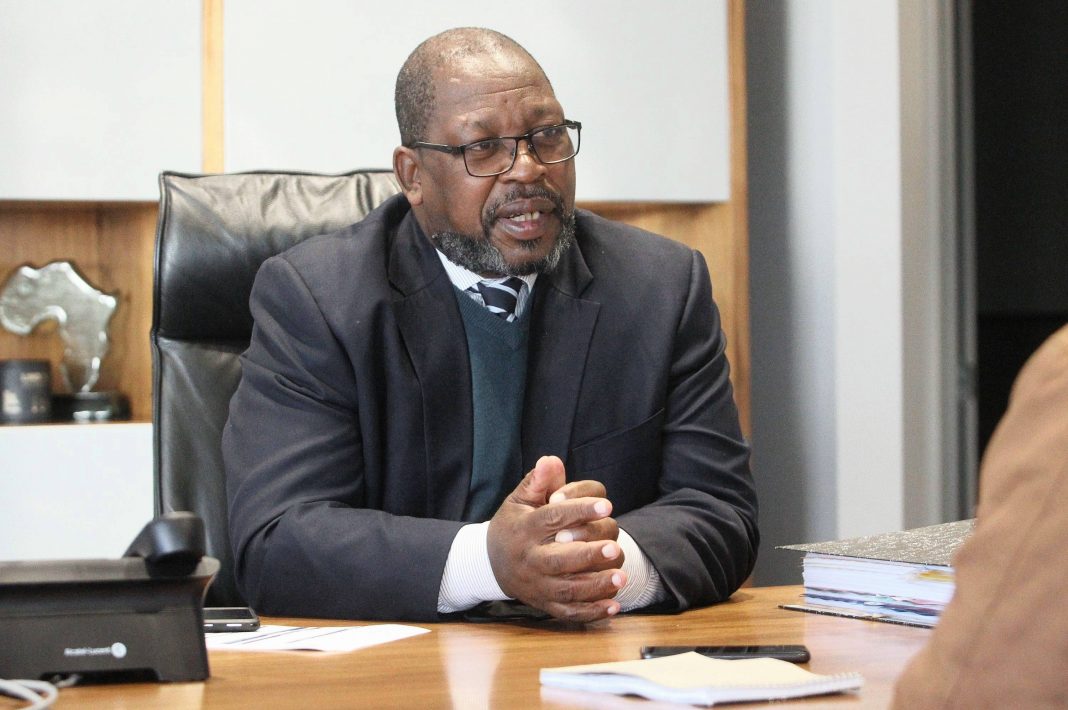RESIDENTS of Tshwane who have been shocked by new fixed charges for water and sanitation could see the city’s R37 billion budget being challenged.
Civil society groups and political parties allege that the city’s administrator Mpho Nawa exceeded his powers when he approved the budget that was implemented on July 1 and at least two groups are preparing court applications to have it reviewed and set aside.
This comes amid the background of a leadership vacuum with no council, no mayor and not even a permanent city manager at the helm.
A court hearing next week could however steer matters in a different direction.
Gauteng MEC for Human Settlements, Urban Planning and Cooperative Governance and Traditional Affairs Lebogang Maile intervened in Tshwane earlier this year, after consecutive council meetings ended in chaos. He deployed a group of administrators under the leadership of Nawa, in terms of s. 139 of the Constitution.
The Democratic Alliance (DA) obtained a High Court order to have Maile’s decision set aside, but the ANC and EFF lodged an appeal to the Constitutional Court.
The DA then obtained a further order to restore the status quo pending the finalisation of the appeal, but the ANC lodged an appeal against that order as well.
Its second appeal will be heard next week and if dismissed, could send the administrator packing and put the DA back in charge of the city administration.
Fixed fee fury
The new charges that have residents fuming, provide that consumers who use up to 9 kilolitres (kl) of water per month no longer pay according to usage, but a fixed fee of R120.
The amount corresponds with what consumers used to pay for 9 kl per month, but those who have used less have seen huge increases.
Moneyweb has seen the municipal bill of one elderly lady who lives alone, showing that she paid R23.22 for 2kl last month, in line with the tariffs in the previous budget, compared with R120 for 3kl in the latest bill.
A similar tariff structure has been introduced for sanitation, with a fixed fee of R70 per month and no cost based on usage up to 9kl per month. This compares well with the R82.50 consumers used to pay for 9kl, but is dramatically more than the R16.42 they would have paid for 2kl.
Small and poor households are disproportionately impacted by the new tariff structure, says Morné Mostert, head of local government at AfriForum.
He says the city failed to inform residents properly about the drastic tariff changes during public consultation on the budget.
Lex Middelberg, chairperson of the Tshwane Money Matters Caucus (TMMC), considers the fixed fees to be a form of municipal tax, as it bears no relation to actual consumption. He says the metro council is only allowed to introduce new municipal taxes with the approval of Finance Minister Tito Mboweni and only after it has been promulgated in the Government Gazette. This, Middelberg says, has not been done.
Challenge coming
Both AfriForum and the TMMC are preparing to challenge Nawa’s approval of the budget in court.
They argue that he has exceeded his powers by approving the budget. In the absence of a legally-constituted city council only the provincial executive may approve a municipal budget. It will only be a temporary budget, to be replaced by a final budget as soon as the council is reconstituted.
The Freedom Front Plus concurs, as does Advocate Werner Zybrands, emeritus professor in municipal governance.
Mostert says AfriForum will insist on compliance with these legislative requirements, including proper public participation on the temporary budget. AfriForum will use that opportunity to fight the new fixed charges.
Middelberg also questions the new property valuation roll that was implemented with the budget on July 1 and says the public consultation in this regard was lacking.
In the budget document published on the city’s website, its legal counsel addresses the “debate” about Nawa’s powers. They indicate that after investigating the matter, they are convinced that he does indeed have the necessary powers to approve a final budget. Their interpretation is that a temporary budget is only relevant if the city failed to pass a budget before the start of the new financial year on July 1, which was not the case in this instance.
Nawa in fact passed the budget a day before, on June 30.
DA mayoral candidate Randall Williams says the party hopes to regain control of the city next week. In light of the court’s pronouncement that the administrator’s appointment was unlawful right form the get go, the party will have to obtain legal opinion on how to “unscramble the egg”, he says.
(COMPILED BY MONEYWEB)

